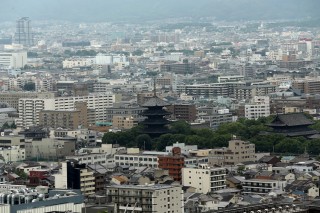Loading
Search
▼ Japan Likely Rebounded from Recession
- Category:Other

WALL STREET JOURNAL
Japan’s economy likely crawled out recession in the last quarter of 2014, helped by rising exports and a sharply weaker yen, a survey of economists by The Wall Street Journal shows.
Gross domestic product is estimated to have expanded 3.6% during the October to December period from the previous quarter on an annualized basis, according to the median forecast of 20 economists polled.
A rebound in the broadest measure of the nation’s economic activity wouldn’t come as much of a surprise. Economists largely expect some level of improvement after the economy contracted 6.7% in the second quarter and 1.9% in the third quarter following the government’s move to raise the sales tax for the first time in 17 years in April. The question is how strong and durable any recovery will be. Economists generally define two consecutive quarters of contraction as a recession.
Putting the world’s third largest economy back on a path for long-term growth is a crucial task for Prime Minister Shinzo Abe, who came into power in late 2012 pledging to lift the nation out of years of slow growth and price declines.
The government will release its preliminary estimates on the fourth-quarter GDP at 8:50 a.m. on Monday in Japan.
While a rebound has largely been factored in, some officials at the Bank of Japan are keeping their expectations for the data low, a person familiar with their thinking has said.
These officials believe private consumption, which accounts for 60% of the GDP reading and is central to the economy’s recovery, still lacks strength, the person said. The person added that they would describe any growth faster than 3% as “more than great.”
Another area to watch is residential investment, economists say. Home purchases plunged during the April to September period after buyers rushed into the market ahead of the sales tax increase. Some economists think, however, that residential investment bottomed out in the final quarter of 2014 and has started to recover.
While domestic demand remained generally sluggish, exports have expanded vigorously to prop up the economy. Shipments of electronic components used in Apple Inc. ’s popular iPhones, for example, were particularly strong.
The yen’s decline of about 30% against the dollar in the past two years has made Japanese products more competitive abroad and has helped companies gain market share in Asia and the U.S.
Another issue of interest: the impact of cheaper oil on Japan’s economic recovery.
Lower oil prices reduce the cost of production and increase profits for companies while allowing consumers to keep more cash in their pockets.
But these cost savings don't contribute to real growth in the economy unless the money is recirculated through investments or consumption. Economists are still waiting to see such spending materialize.
“How the household sector uses this increased purchasing power will be key for the economy going forward,” Shuji Tonouchi, an economist with Mitsubishi UFJ Morgan Stanley Securities , said.
—Tatsuo Ito contributed to this article.
- February 18, 2015
- Comment (0)
- Trackback(0)

